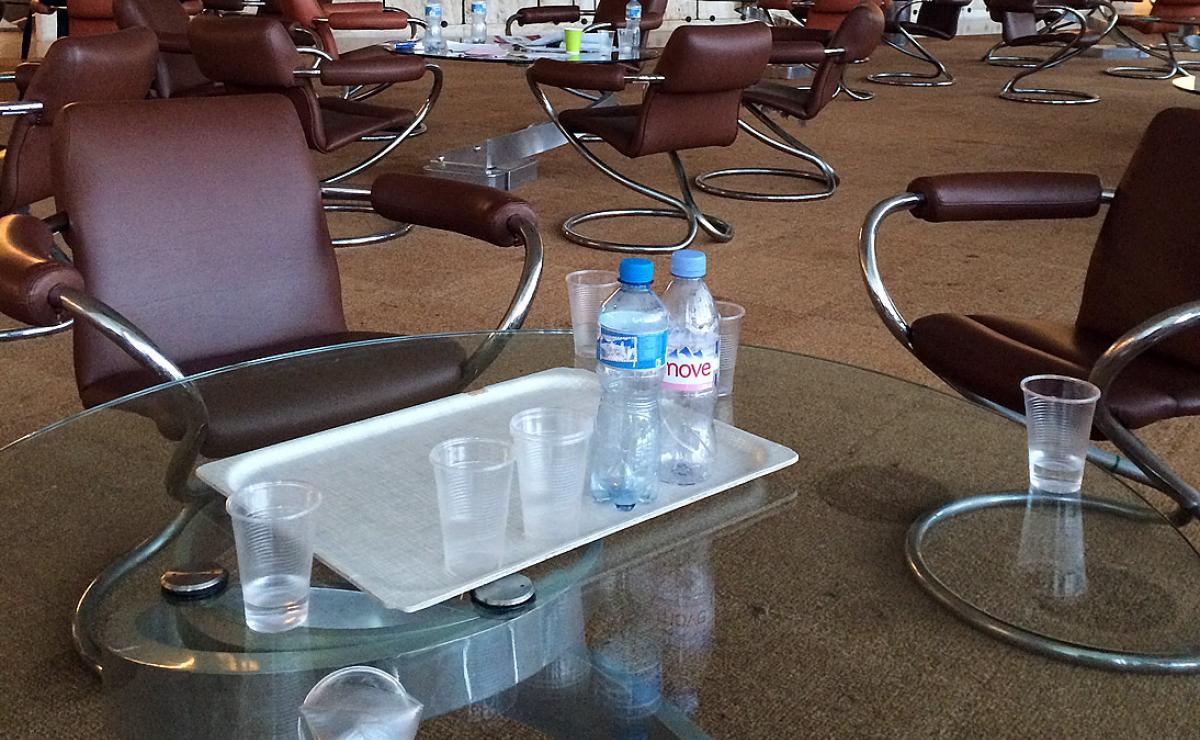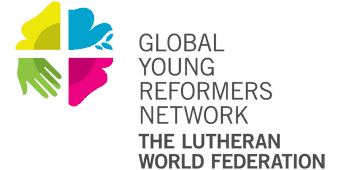The detritus of the busy

By Marta Spangler
I happened to be at the UN early one morning, to drop off information about a side panel discussion and noticed the sheer volume of discarded cups and half empty crumpled water bottles littering the tables in the Serpentine Bar. This is the area closest to the conference rooms, where participants can talk and get refreshments.
I arrived in Geneva less than one month ago, and started my work with the LWF’s Office for International Affairs and Human Rights not even three weeks ago. In that time, the 27th Session of the Human Rights Council has begun and welcomed a new High Commissioner, Prince Zeid Ra’ad Zeid Al-Hussein of Jordan. The Ecumenical Center, meanwhile, welcomed the Egyptian Coptic Pope and hosted a group from the Church of Norway’s Ecumenical and International Council.
Needless to say, it’s been an exciting time to begin my work, and these contemplative moments have been few and far between. So it was unusual to be soaking in the morning quiet and watching the Palais des Nations get ready for the day. I noticed security personnel doing their rounds; janitors sweeping the corners of the halls; and construction workers having coffee and mapping out repairs for the day.
The surrounding rooms, in less than an hour, would be full with official country delegates and NGO representatives discussing the challenges to human rights in post conflict situations, the importance of protecting human rights defenders, the use of drones in humanitarian aid…..
Yet sitting in front of me was this pile of trash, the detritus of the busy. Three days ago I attended the Human Rights Council’s annual panel discussion on the Integration of a Gender Perspective. I thought about the fact that across the world, women are often the ones cleaning up, taking care of the home and the children, and doing work that is often undervalued and unpaid. These are the quieter inequities, the ones that don’t get as much attention or floor time, because they aren’t a violent crisis. Here at the UN it is different of course, because the janitors get a salary, but I might argue that they are likewise underappreciated and invisible to the larger work taking place there each day.
I find myself excited and grateful. I am excited to learn from the faithful example offered by colleagues who are deeply committed to giving voice and dignity to all persons; excited to join the gender justice work at the LWF; excited to join LWF youth in their commitment to #FastfortheClimate. And overall, I feel deeply grateful, to be able to take advantage of this opportunity, and for the peaceful moments that allow me to notice the small things happening all around me, too.
Marta Spanger is Junior Advocacy Officer in the Office for International Affairs and Human Rights in the Department for Theology and Public Witness at the Lutheran World Federation
